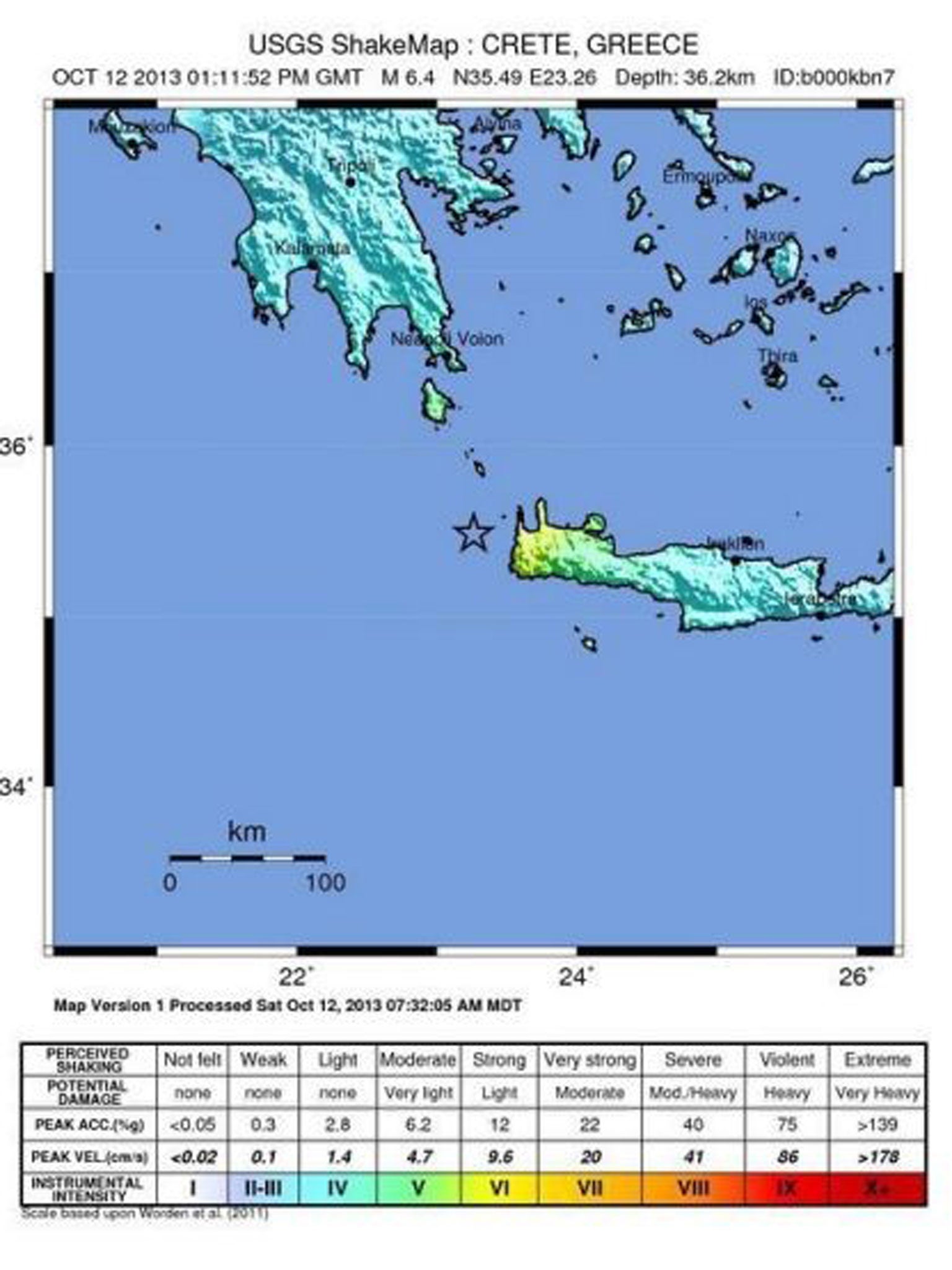Greek island Crete rocked by 6.3 magnitude earthquake

An earthquake with a preliminary magnitude of 6.3 struck west of the Greek island of Crete, with early reports citing minor damage.
The Athens Geodynamic Institute said the quake happened at 4.12pm (1312 GMT), 68 kilometers west of the city of Chania, in Crete, and 279 kilometers south of Athens. The epicenter was 23 kilometers (14 miles) under the sea.
A local newspaper reported that a man received a minor injury when he panicked and jumped off a first-floor balcony, landing on a car. There were also reports that anxious citizens in Chania and Iraklio, the island's largest city east of Chania, rushed into the streets. Firefighters in the area said there was no serious damage and that they received no emergency telephone calls.
"The earthquake was very strong and lasted long," Chania deputy mayor Manoussos Lionakis told The Associated Press. "Fortunately, there was no serious damage. The worst I've heard was some rock falls in a ravine west of the city. A bus was trapped, but no one was hurt. We have removed the debris.
"Right now we have employees inspecting the buildings in the old city, but, apart from some cracked marble facades here and there, we have found nothing," he added.
Strong earthquakes are far from rare in Greece. Last June, a 5.6-magnitude quake struck south of Crete, likewise resulting in no serious damage, and temblors over 4 magnitude occur quite often.
The deadliest recent earthquake, of 5.9 magnitude, struck near Athens in September 1999, resulting in 143 dead, 110 collapsed buildings and more than 5,000 buildings severely damaged.
Additional reporting by Associated Press
Join our commenting forum
Join thought-provoking conversations, follow other Independent readers and see their replies
Comments